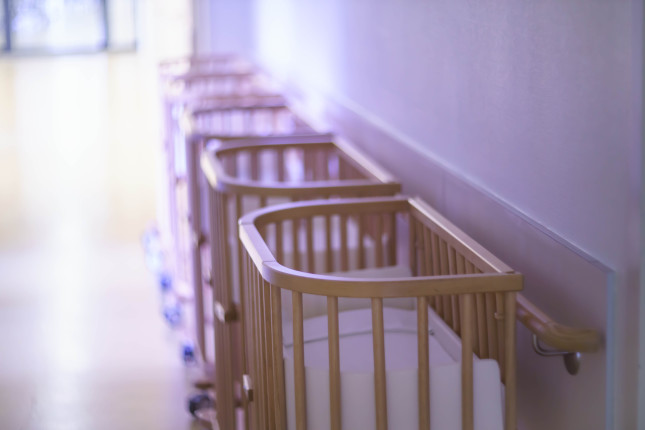-
Food as a Pathway to Peace: COVID, Climate, and the Hunger-Conflict Nexus
›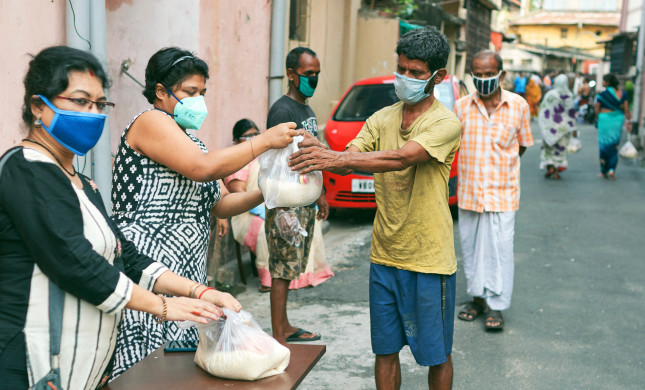
“We produce more than enough food for the world’s population, but more and more people have been growing hungry in recent years,” said Kelly McFarland, Director of Programs and Research at the Institute for the Study of Diplomacy (ISD) at Georgetown University, during a panel discussion on COVID, Conflict, and Climate co-hosted by ISD and the Stimson Center’s Global Governance, Justice & Security, and Food Security Programs.
-
Happy World Gorilla Day! A Conversation with Dr. Gladys Kalema-Zikusoka on COVID-19’s Impact on Gorilla Conservation and Public Health in Uganda
› “When we started out, people thought it was weird. ‘Why are you integrating people and animals and why are you integrating human health and animal health?’” says Kalema-Zikusoka, founder of Conservation Through Public Health (CTPH), in this week’s New Security Broadcast. Indeed, health infrastructure and conservation have long been organized around distinct silos. “Donors were focusing on single sector funding, and government departments were aligned along single sectors,” says Kalema-Zikusoka.
“When we started out, people thought it was weird. ‘Why are you integrating people and animals and why are you integrating human health and animal health?’” says Kalema-Zikusoka, founder of Conservation Through Public Health (CTPH), in this week’s New Security Broadcast. Indeed, health infrastructure and conservation have long been organized around distinct silos. “Donors were focusing on single sector funding, and government departments were aligned along single sectors,” says Kalema-Zikusoka. -
COVID-19 and the Fight Against Climate Change: What Have We Learned?
›
As the world continues to battle the COVID crisis, we must not lose sight of the greatest long-term threat faced by mankind: climate change.
COVID-19 and its even more contagious variants have wrought misery upon our world, inflicting massive loss of life and sickness, widespread disruption of health services, and economic ruin with ensuing social upheaval. There is no silver lining.
We can, however, attempt to extract useful lessons from the strategies and tactics──both successful and unsuccessful──used to battle the contagion to better array our forces against that other pending global catastrophe: climate change.
-
Sharon Guynup, Mongabay
Address Risky Human Activities Now or Face New Pandemics, Scientists Warn
›
In early 2020, as a novel coronavirus swept the globe, a little-known word entered dinner table conversation. COVID-19 was “zoonotic”: a disease that originated in animals, then evolved, breached the Darwinian divide, and jumped to humans. On March 11, 2020, the World Health Organization (WHO) declared a global pandemic.
Now, with another wave surging worldwide — and more than 600,000 new cases being diagnosed daily — a new fear-evoking word has entered the lexicon: “variant.”
-
No Vaccine to End the Shadow Pandemic of Gender-Based Violence
›“Addressing gender equity and equality is essential to every other challenge we face,” said U.S. Vice President Kamala Harris in a recent speech at the Generation Equality Forum. Following the forum, countries across Francophone Africa made key commitments to end gender-based violence (GBV), including child marriage.
-
A New Generation of Family Caregivers Emerges During the Pandemic
›
The population of unpaid family caregivers is shifting, and the pandemic has accelerated that change. One in five carers became caregivers for the first time during the pandemic, according to the Embracing Carers Global Carer Well Being Index®. A disproportionate share of these new carers were Gen Z or millennial (less than 38 years old). And 25 percent were caring for children and a sick/aging parent or grandparent.
-
The Cost of Care: How the COVID-19 Pandemic Has Exacerbated the Baby Bust
› The decision to have a child usually requires a feeling of stability and confidence in the future, says Natascha Braumann, Director of Global Government and Public Affairs for Fertility at EMD Serono, on this week’s episode of Friday Podcasts. But with COVID-19, especially in the first months of the pandemic, there was no feeling of stability. “No one knew what was going to happen.”
The decision to have a child usually requires a feeling of stability and confidence in the future, says Natascha Braumann, Director of Global Government and Public Affairs for Fertility at EMD Serono, on this week’s episode of Friday Podcasts. But with COVID-19, especially in the first months of the pandemic, there was no feeling of stability. “No one knew what was going to happen.” -
COVID-19 Accelerates Existing Decline in Fertility Rates
›
“Spoiler alert: COVID made it even worse,” said Natascha Braumann, Director of Global Government and Public Affairs for Fertility at EMD Serono, of declining fertility trends across the globe. Braumann spoke at a recent Wilson Center event highlighting pre-pandemic fertility, demographic trends, and the impact of COVID-19. The panel was co-sponsored by EMD Serono, the healthcare business of Merck KGaA, Darmstadt, Germany.
Showing posts from category Covid-19.


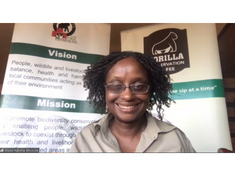 “When we started out, people thought it was weird. ‘Why are you integrating people and animals and why are you integrating human health and animal health?’” says Kalema-Zikusoka, founder of
“When we started out, people thought it was weird. ‘Why are you integrating people and animals and why are you integrating human health and animal health?’” says Kalema-Zikusoka, founder of 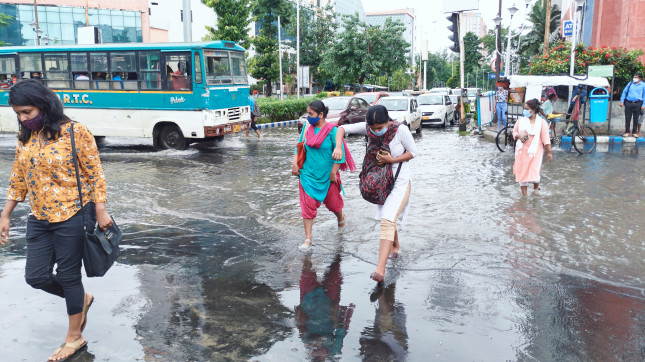
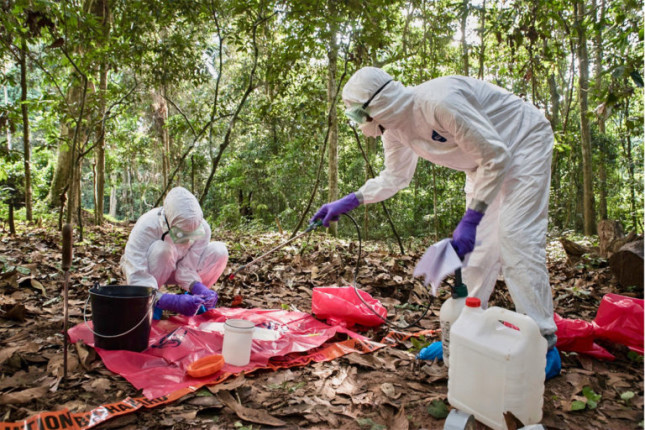
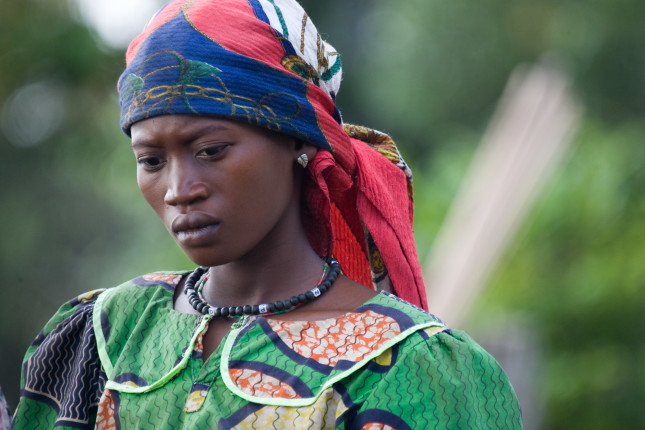

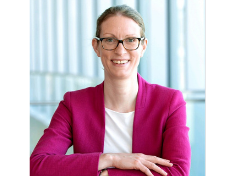 The decision to have a child usually requires a feeling of stability and confidence in the future, says Natascha Braumann, Director of Global Government and Public Affairs for Fertility at EMD Serono, on this week’s episode of Friday Podcasts. But with COVID-19, especially in the first months of the pandemic, there was no feeling of stability. “No one knew what was going to happen.”
The decision to have a child usually requires a feeling of stability and confidence in the future, says Natascha Braumann, Director of Global Government and Public Affairs for Fertility at EMD Serono, on this week’s episode of Friday Podcasts. But with COVID-19, especially in the first months of the pandemic, there was no feeling of stability. “No one knew what was going to happen.”